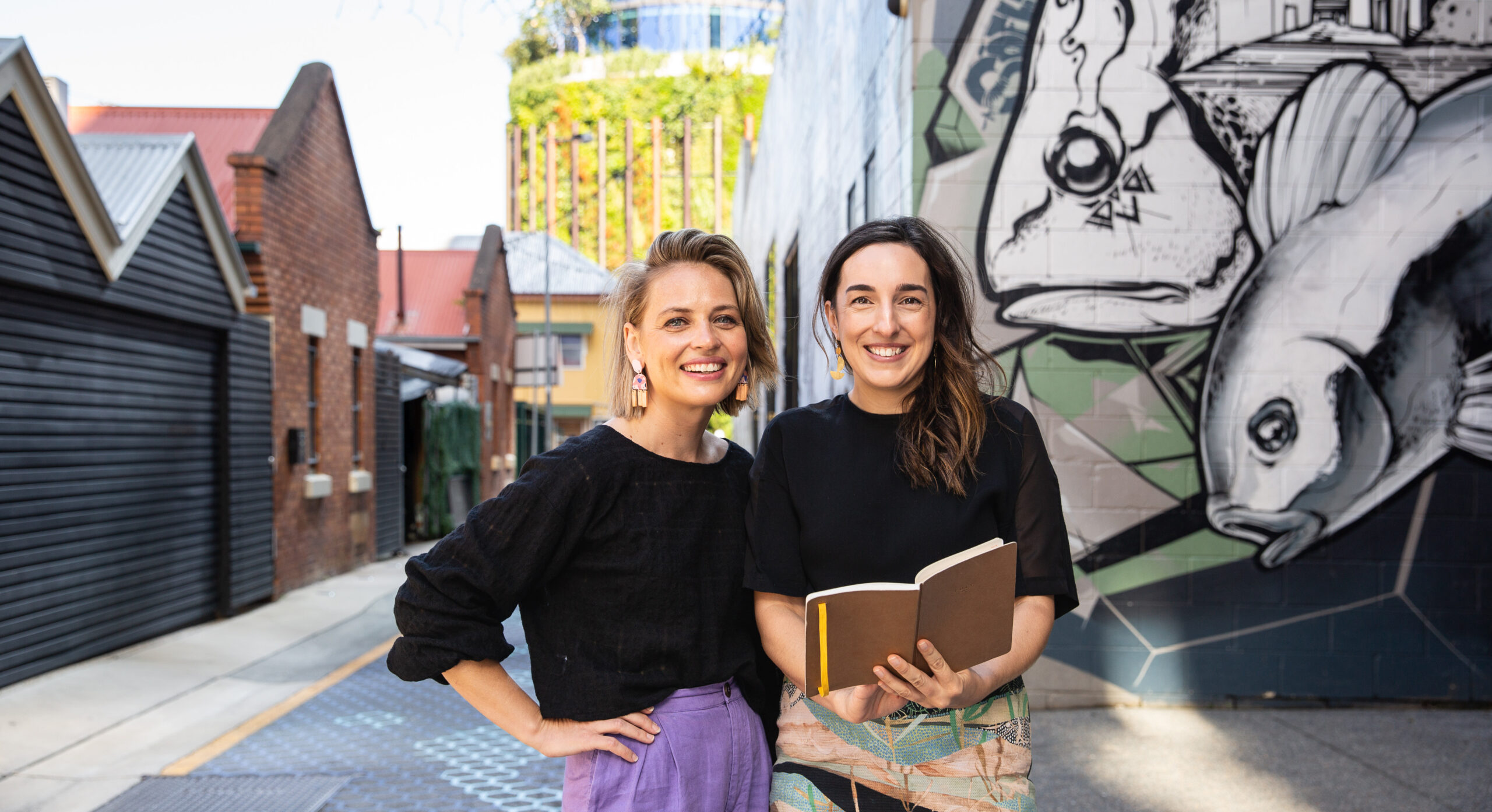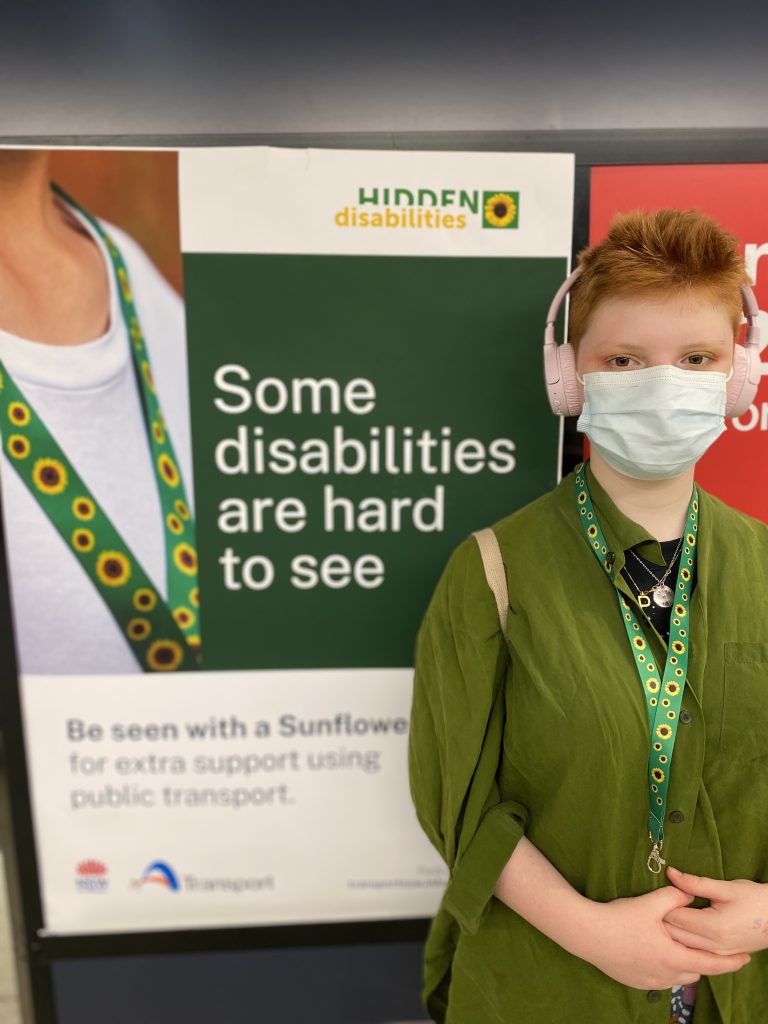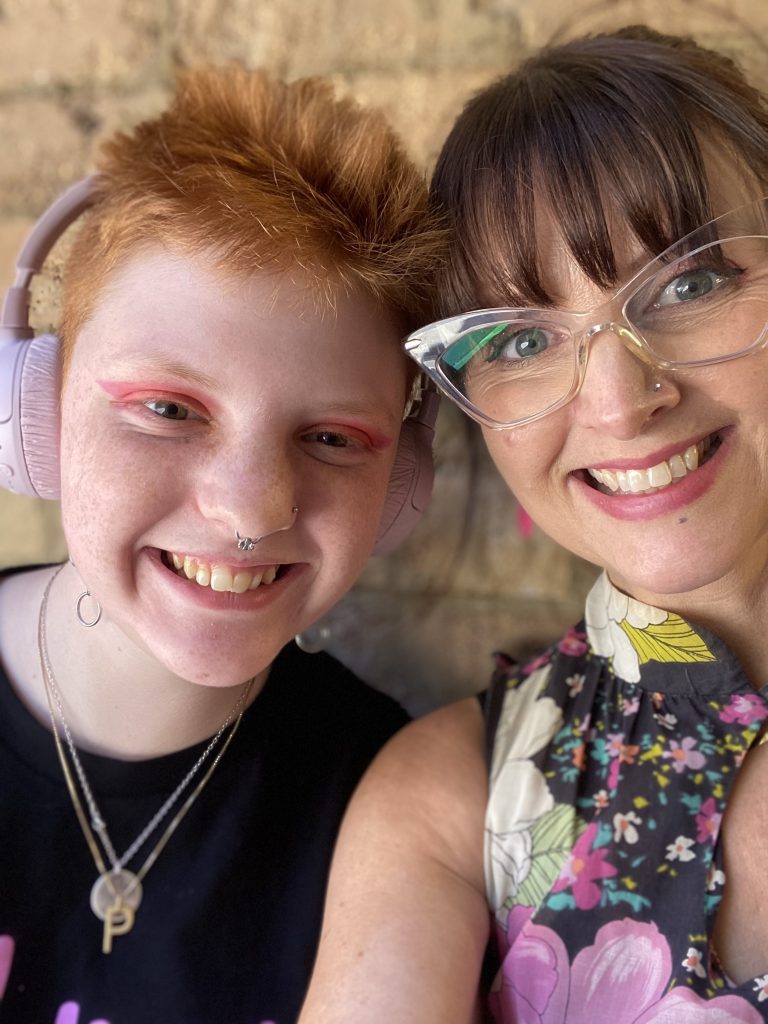

Improving accessibility and inclusion
What does greater accessibility and inclusion look like to you?
I don’t think this is something that would happen, but people thinking about accessibility more, like, having quiet spaces. Me being allowed to wear headphones – I literally can’t go anywhere without them. I’ve got such bad sensory processing issues due to sensory processing disorder. It basically means I don’t have that filter for sensory input that everyone else does, and I can’t function without headphones. And so, I guess this is more specific to teachers, but don’t harass people for wearing headphones at school. There could be a reason.
What’s one thing we can all do to better support people with disabilities?
I think people should never assume things about other people. Everyone experiences the world differently. You should always ask people what they need, and how they feel and what’s going on for them.
What are some misconceptions about people with a disability you’d like to address?
It is so important for people to get the accessibility they need because I think a lot of people think, “Oh, why do they get that and I don’t?” It’s because you don’t need it! Maybe this person is struggling and, providing extra time on an exam will help them resolve that. They’re not getting ‘extra’. In fact, they’re trying twice as hard!
How can we better approach accessibility and inclusion in the workplace?
There’s so many different types of disabilities. I think a big thing is asking a variety of people what they would want. I think, for me, it would be quiet places, and probably less intense lights – It’s more the bright white ones. Just thinking of sensory stuff like textures and having some fidget stuff available – anything textured and sensory. It could be a stress ball or fidget spinners, which are self-soothing. It helps to reset and regulate yourself.
What is the importance of quiet places to you?
Just to have a break. I fell asleep before because I was so tired. I get really bad fatigue just because I get overwhelmed so easy. Anxiety and sensory things are everywhere and it’s not really something I can control. I find it exhausting to get through that and to do work.
What’s your experience of sensory processing disorder, for those who aren’t familiar with it?
I always describe it as layers and layers of sound. Being in places like school and on transport, I find really difficult. I’d say my sensory issues are one of the most debilitating things I have because it affects how I’m able to go to places.
How does that impact the way you approach everyday activities?
I like to look up places beforehand to be like, ‘this is the layout,’ and try and think of how many people might be there. Even if there’s nowhere I could go that would be quiet, I just try and prepare myself as much as possible.
Are there any stigmas around invisible disability you’d like to address?
That’s a big thing – you can’t see it, so how do you know it’s real? People can be very judgemental, or deny it completely, saying, “No, you don’t have Autism”. And it’s not until the point of meltdowns that people are like, “Oh, it’s real”. But, I don’t want to get to that point. That’s what we’re trying to get the accessibility for.
What’s one thing you wish people wouldn’t say to someone who lives with disability?
I really hate when people are like “no it’s not a disability, it’s a different ability”, like, disability is not a bad word, it’s an explanation. And by taking that away you’re taking away, what people go through. You’re not, valuing their experience. So, I think people should never say that to a disabled person.
What advice do you have for promoting greater inclusion?
You need to listen to what people are asking for. You cannot assume that someone’s just doing it to get out of things. You don’t know what’s going on, that’s what an invisible disability is.
People say, “You should always push yourself,” and I’m like, “I’m not sure there’s any point if it’s just going to cause me to have a meltdown.” I know my limits, and I don’t think I should push that.
Also, asking to hug and touch people is a big one in general. It’s hard, but I’m now able to say, “I’m so sorry but can you please not hug me right now”. I just think we should never assume or force people. Just be gentle and listen.
When do you feel most comfortable, and at your happiest?
Just when I feel like people aren’t judgemental. I think I’m good at telling when someone’s judging me, or when it’s a happy, accepting environment – that’s when I feel much safer and much happier. I feel like asking consent to touch someone, and stuff like that, always makes me feel like people understand.
What advice would you tell your younger self at primary school?
I think I would say, just don’t care as much. There’s a reason you’re like this!
What are some of your proudest accomplishments?
I would say there’s few. Just accepting myself was a really big thing for me. Getting diagnosed helped that so much, because when I was younger, I genuinely thought I was broken. And so just being able to accept myself and be, like, “that’s not true” and understanding myself better. And asking for the accessibility I need. It’s not like I’m getting more than other people, I’m just trying to be equal.
Related reading:
Creating more inclusive and liveable communities with and for people with disability
Enhancing social cohesion, inclusion and community resilience in Waverley

